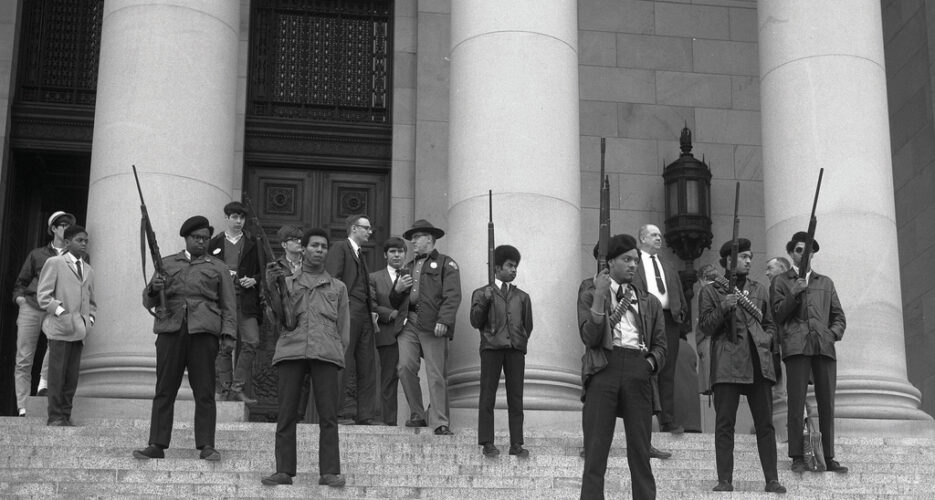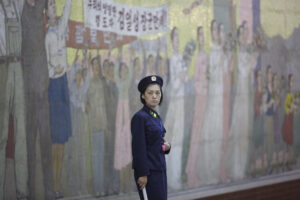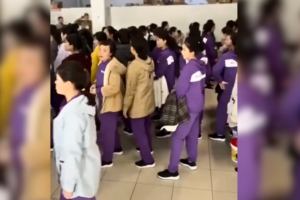During the 1960s and 1970s, political revolution fueled by growing discontent with the war in Vietnam enveloped the United States. Students on college campuses recited quotes from Mao’s Little Red Book while radical organizations, such as the Black Panther Party, championed self-defense in their communities.
During this tumultuous period, North Korea’s independent streak and commitment to self-determination resonated with these radicals. However, it was not a one-way revolutionary street. The North Koreans hoped to take advantage of instability in the United States and reached out to various far-left groups, such as Puerto Rican pro-independence activists, white radicals, and the Black Panthers.
During the 1960s and 1970s, political revolution fueled by growing discontent with the war in Vietnam enveloped the United States. Students on college campuses recited quotes from Mao’s Little Red Book while radical organizations, such as the Black Panther Party, championed self-defense in their communities.
During this tumultuous period, North Korea’s independent streak and commitment to self-determination resonated with these radicals. However, it was not a one-way revolutionary street. The North Koreans hoped to take advantage of instability in the United States and reached out to various far-left groups, such as Puerto Rican pro-independence activists, white radicals, and the Black Panthers.
Try unlimited access
Only $1 for four weeks
-
Unlimited access to all of NK News: reporting, investigations, analysis
-
Year-one discount if you continue past $1 trial period
-
The NK News Daily Update, an email newsletter to keep you in the loop
-
Searchable archive of all content, photo galleries, special columns
-
Contact NK News reporters with tips or requests for reporting
Get unlimited access to all NK News content, including original reporting, investigations, and analyses by our team of DPRK experts.
Subscribe
now
All major cards accepted. No commitments – you can cancel any time.










